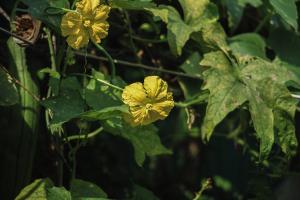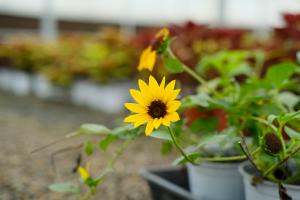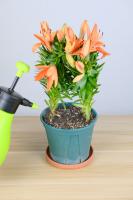Can I Use Old Laundry Water on Plants?
Water is essential for the growth and survival of plants, and it is important to make sure that they receive enough water to thrive. However, not all water is created equal, and it may not always be necessary to use fresh, clean water when watering your plants. If you are wondering whether it is okay to use old laundry water on plants, the answer is yes, but with some important caveats.
Risks of Using Old Laundry Water on Plants
While using old laundry water on plants may seem like a good way to conserve water and reduce waste, there are some potential risks to consider. Laundry water may contain detergent residue, dirt, debris, and other contaminants that could harm or even kill your plants if used improperly. Additionally, if you use fabric softeners or other additives in your laundry, these chemicals could also be present in the water and may have negative effects on your plants.
Benefits of Using Old Laundry Water on Plants
Despite the risks, there are also some potential benefits to using old laundry water on plants. For one, it can help to conserve water and reduce your overall water usage, which is good for the environment and your wallet. Additionally, some studies have suggested that the nutrients and minerals found in laundry water may actually be beneficial for plants, as long as it is used properly.
How to Safely Use Old Laundry Water on Plants
If you decide to use old laundry water on your plants, there are some important steps you should take to ensure that it is done safely and effectively. First, it is important to make sure that the water is not too hot or too cold, as extreme temperatures can harm your plants. Additionally, it is a good idea to let the water sit for a few days after washing, to allow any chemicals or detergents to settle or evaporate. Finally, it is important to avoid using laundry water on plants that are particularly sensitive or delicate, such as seedlings or plants that are prone to leaf burn.
Alternatives to Using Old Laundry Water on Plants
If you are hesitant to use old laundry water on your plants, there are some alternative options to consider. One option is to collect rainwater and use it to water your plants, as rainwater is generally free of contaminants and rich in minerals and nutrients. Another option is to filter your laundry water using a specialized system, which can help to remove any harmful chemicals or contaminants before it reaches your plants.
Conclusion
In conclusion, while using old laundry water on plants can be a good way to save water and reduce waste, it is important to do so safely and with caution. By taking the necessary precautions and using common sense, you can help to ensure that your plants receive the water and nutrients they need to grow and thrive.

 how many times do yo...
how many times do yo... how many planted tre...
how many planted tre... how many pine trees ...
how many pine trees ... how many pecan trees...
how many pecan trees... how many plants comp...
how many plants comp... how many plants can ...
how many plants can ... how many plants and ...
how many plants and ... how many pepper plan...
how many pepper plan...






























